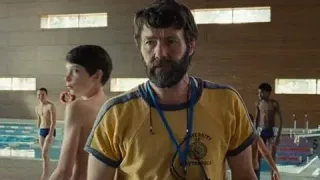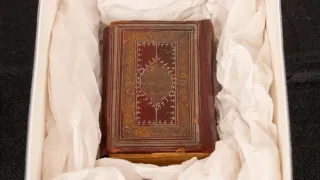December 5, 2018
Gay Wrestler Supports Suicide Prevention by...Making Porn
READ TIME: 2 MIN.
Openly gay wrestler and personal trainer Dave Marshall has found a unique way to support suicide prevention: By making porn.
In an interview with Gay Star News, the Australian athlete opened up about using his OnlyFans account for a good cause. OnlyFans is a private subscription service that allows users to require a fee to see their content. A number of porn stars use the platform to build their brand and make extra money.
Marshall, 29, explained his father took his own life last year and that he donates a portion of his proceeds from OnlyFans to the suicide prevention group Beyond blue. So far, he said he's raised about $3,600.
"The reason the money I raise from my OnlyFans goes towards Beyond Blue is seeing every day how big depression and anxiety has become in society and almost overlooked," he wrote on Instagram. "Stats on LGBT in this area are quite scary too so I hope I can in some way, give back to my community. Positivity is everything."
Speaking with GSN, Marshall said he came out as gay three years ago – around the same time he quit his sales job to start wrestling professionally.
"I had hooked up with guys in my early years of high school, although it was always in secret," he said. "I ended up in and out of relationships with girls. The last one when I was 18 – that lasted for seven years. I told her when we were 23 I was bi but [she said] as long as I loved her, she didn't care."
Nevertheless, they broke up and that's when he started dating a man. Even though that relationship did not last, his ex is the one who told him about OnlyFans. At first, Marshall wasn't too sure about it.
"After some thought, I did start it up with part [of the] proceeds going to Beyond Blue," This text will be the linkthe athlete told GSN.
On Instagram, he added:
"I know my way of donating to my charity may be a bit different but the waves of positive messages from you guys has been a blessing! To those that don't agree, look around, there is so much negativity in the world today already, don't add to that! Spread some positivity and love life!"
Check out some highlights from Marshall's Instagram below. Check out his OnlyFans account by clicking here. And Click here to read his full interview with GSN.






